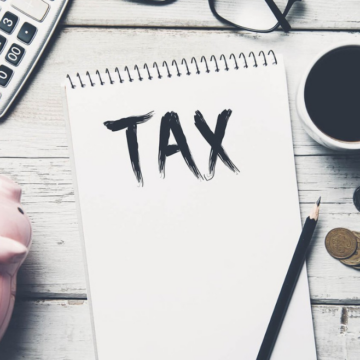You’ve done the meal planning, assessed your existing resources, developed a budget and know exactly what you want. Now it’s time to shop! Here are some tips for sticking to your grocery budget while you’re at the store.
Know Your Limits
Set your budget when you’re planning your menu, and before you shop. And while you’re in the store keep track of how much your bill will be before you get to the checkout.
You can keep a running total of your total food basket using a calculator, paper or in your head. One way to keep it simple is to round up to the nearest dollar for each item instead of trying to be exact. Research shows that people actually do a worse job of estimating the amount in their food basket when trying to be precise to the dollar. Just be as close as possible. After sales tax is added, you’ll find yourself right in the ballpark.
Know Your Spending Downfalls
Some people can stay within a budget using their checkbook or debit card. Some can use a credit card. Some people use cash only to make sure they stick to their goal. Learn what works best for you, and make it a habit.
Know Your Needs
Having a shopping list is essential. It allows you to be prepared to make purchases that you need for the week. You can avoid going down each and every aisle, and a shopping list also helps you avoid buying excessive items on impulse or having to go back because you forgot something. This wastes gas and time.
Know the Store
Grocery stores are designed to maximize store profits, not your savings. Planning ahead will help you take full advantage of your buying power! So ignore the displays set up to entice you into buying spontaneously. Knowing the layout of the store helps to avoid these hurdles, because you know what you need and where to find it. It helps to order your grocery list in based on the store where you shop. Having to search the store for an item makes it more likely that you’ll buy impulsively.
Know the Deals
Watching the weekly grocery store flyers, particularly for the specials on the front page, is a great way to stretch your dollar. Watch for sales on items that you normally buy. Watch for unit price, not total price. The larger size is usually the lowest price per ounce, but that’s not always the case. This can help you save money in your menu too, if you know about the sale before you go.
Know How Couponing Works for You
People can get very opinionated about coupons. There are many ways to save money, and coupons can be a valuable one. Some coupons can really be a great deal, especially if they’re for items you normally buy. Others may not be all they’re cracked up to be. For instance, coupons offering 50 cents off of a pack of cheese, but only when you buy three, may not reduce your bill on this week’s trip. It’s important to think ahead. If you’re only going to use one pack before the other two go bad, you may save 50 cents and waste $5. And be sure that there isn’t another brand that’s actually cheaper, even without a coupon.
Be cautious about buying more than you need, have room for, or just to get a good deal.
You can also find more tips on saving money at the grocery store here.
GreenPath Financial Service
GreenPath, A Financial Resource
If you’re interested in building healthy financial habits, paying down debt, or saving for what matters most, take a look at these free financial tools.










